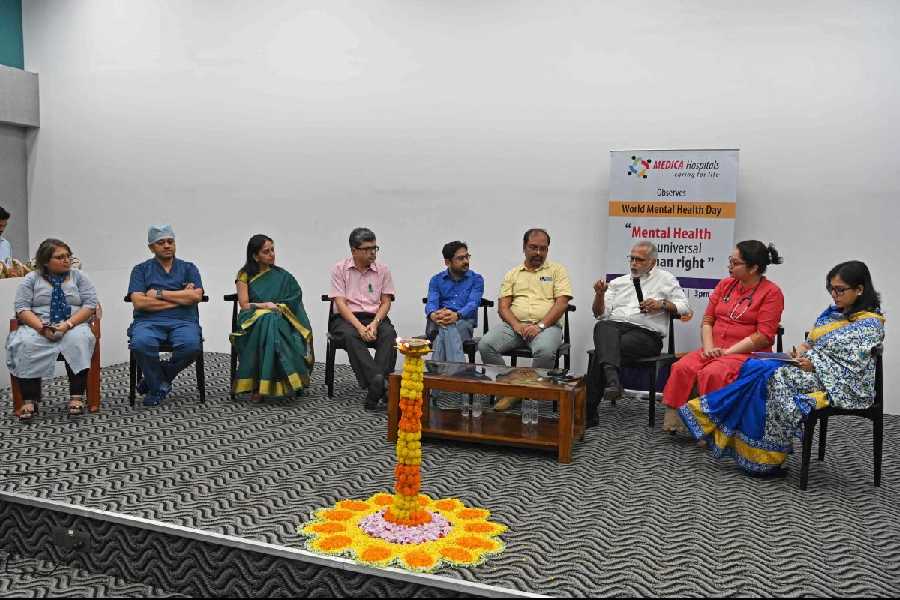People often fail to identify mental conditions and do not acknowledge that they need to seek help, said a panel of medical practitioners at a discussion on mental health on Tuesday.
Denial is often related to self stigma, said a psychologist while introducing the topic: Mental health is a universal human right.
On the occasion of World Mental Health Day, Medica Superspecialty Hospital organised a panel discussion on Mental health is a universal human right.
“Self denial is related to self stigma,” said Anuttama Banerjee, consultant psychologist at Medica Superspecialty Hospital.
Banerjee gave an example of some doctors who refused to participate in a survey to asses their stress level.
She said people can be “social actors” and put up facades but often they do not know “how to have a conversation” with themselves.
“If we really have to make mental health a universal right, we will have to start with ourselves. We have to pause and we have to tell ourselves it is okay to not feel so alright,” said Banerjee.
She said people should stop asking themselves “How can I have depression?”.
Stigma is a universal phenomenon, and not just in India, said consultant psychiatrist Arijit Dutta Chowdhury at the panel discussion.
During the discussion, the panelists spoke about patients with general medical conditions or surgeries who show psychiatric symptoms and have had a long psychiatric history that has remained undiagnosed.
They are referred to psychiatrists but doctors face challenges while trying to reach out to the patients or their families.
Families often question the intervention of a psychiatrist. Some families refuse psychiatric help, said Dutta Chowdhury.
“When we are talking about rights we have to see rights for whom? They are not aware of the rights and do not want the rights,” he said.
Sohini Saha, consultant psychologist at the hospital who moderated the session with Soma Chakraborty, vice president, facility and support services, said often, when they speak to patients alone, they break down after a while and open up during the conversation.
The two-hour panel discussion touched on topics like mental stress of the elderly whose children live outside the city or country and how their situation gets worse if they have lost a partner.
The panel also discussed substance abuse among adolescents and decrimalisation of suicide.
“India’s commitment to theUnited Nations Convention on the Rights of Persons with Disabilities in 2007 marked a pivotal moment in our journey towards a more inclusive society,” said senior consultant psychiatrist Abir Mukherjee.
The other panelists included senior consultant psychiatrist Sourav Das, neurosurgeon and spine surgeon Harsh Jain, head of the department paediatrics and neonatalogy Nicola Judith Flynn and psychooncologist Arunima Datta.
Also present were Udayan Lahiry, managing director, Medica Group of Hospitals and Ayanabh Debgupta, joint managing director, Medica Group of Hospitals at Medica Superspecialty Hospital.
